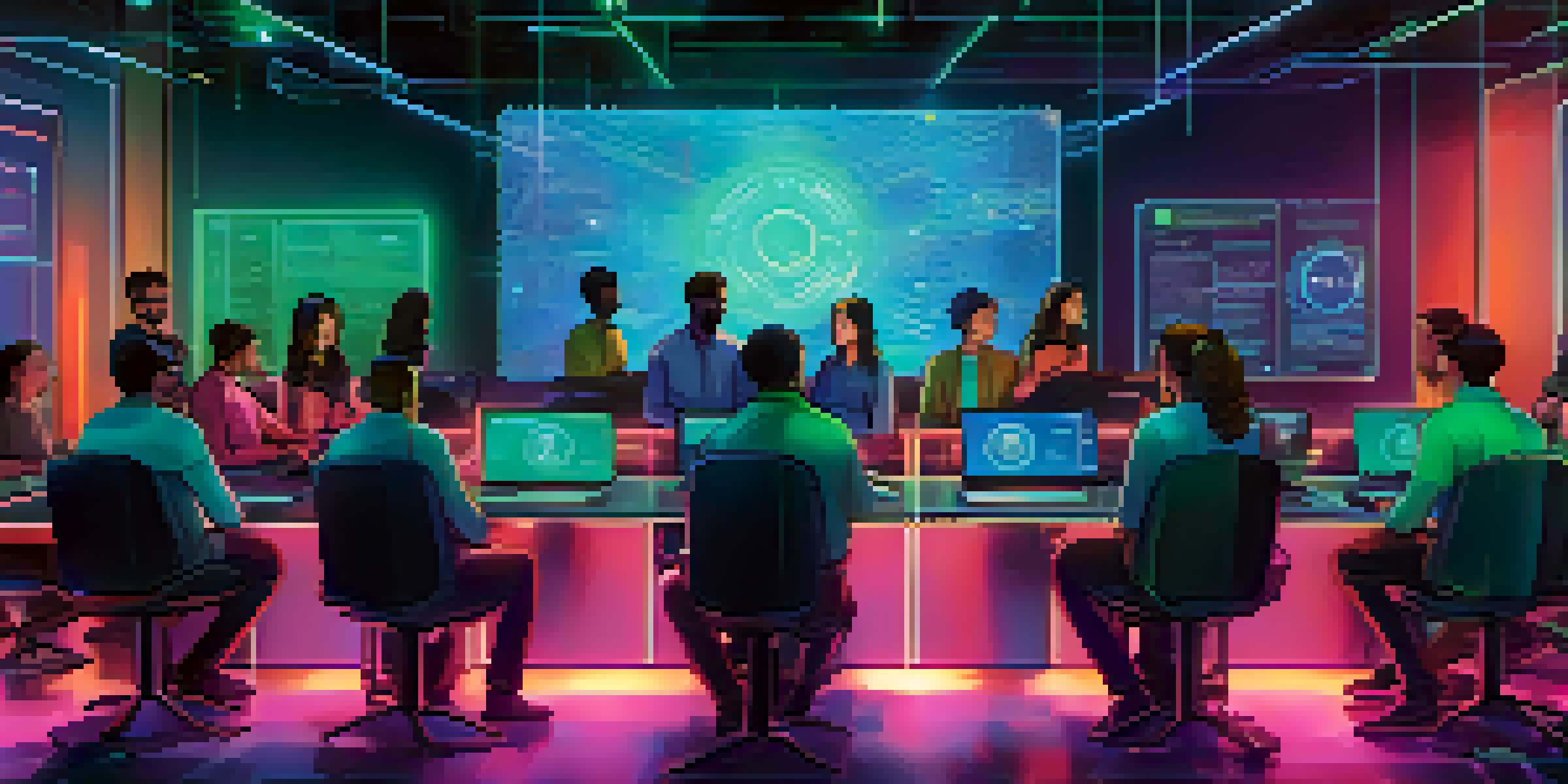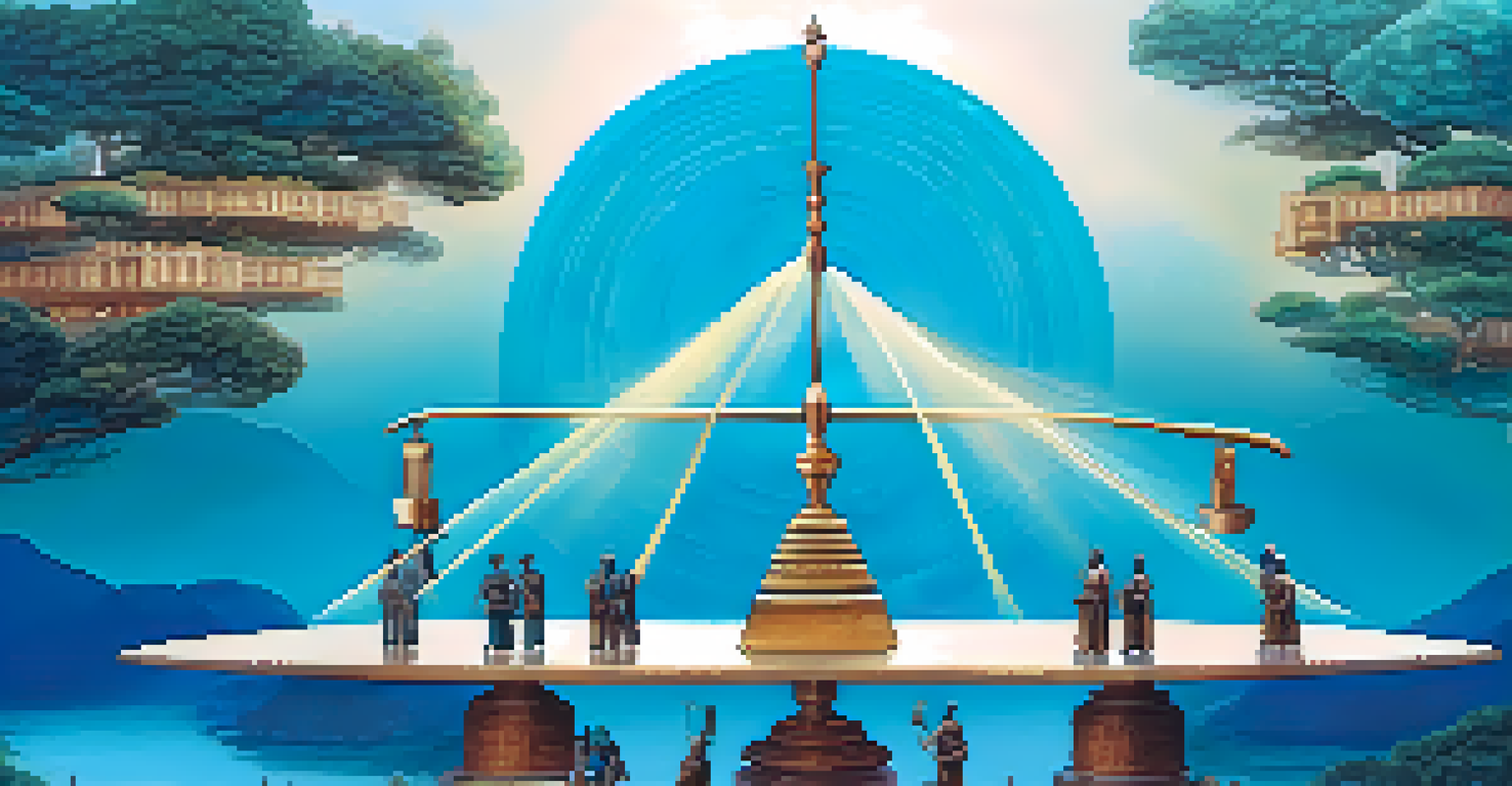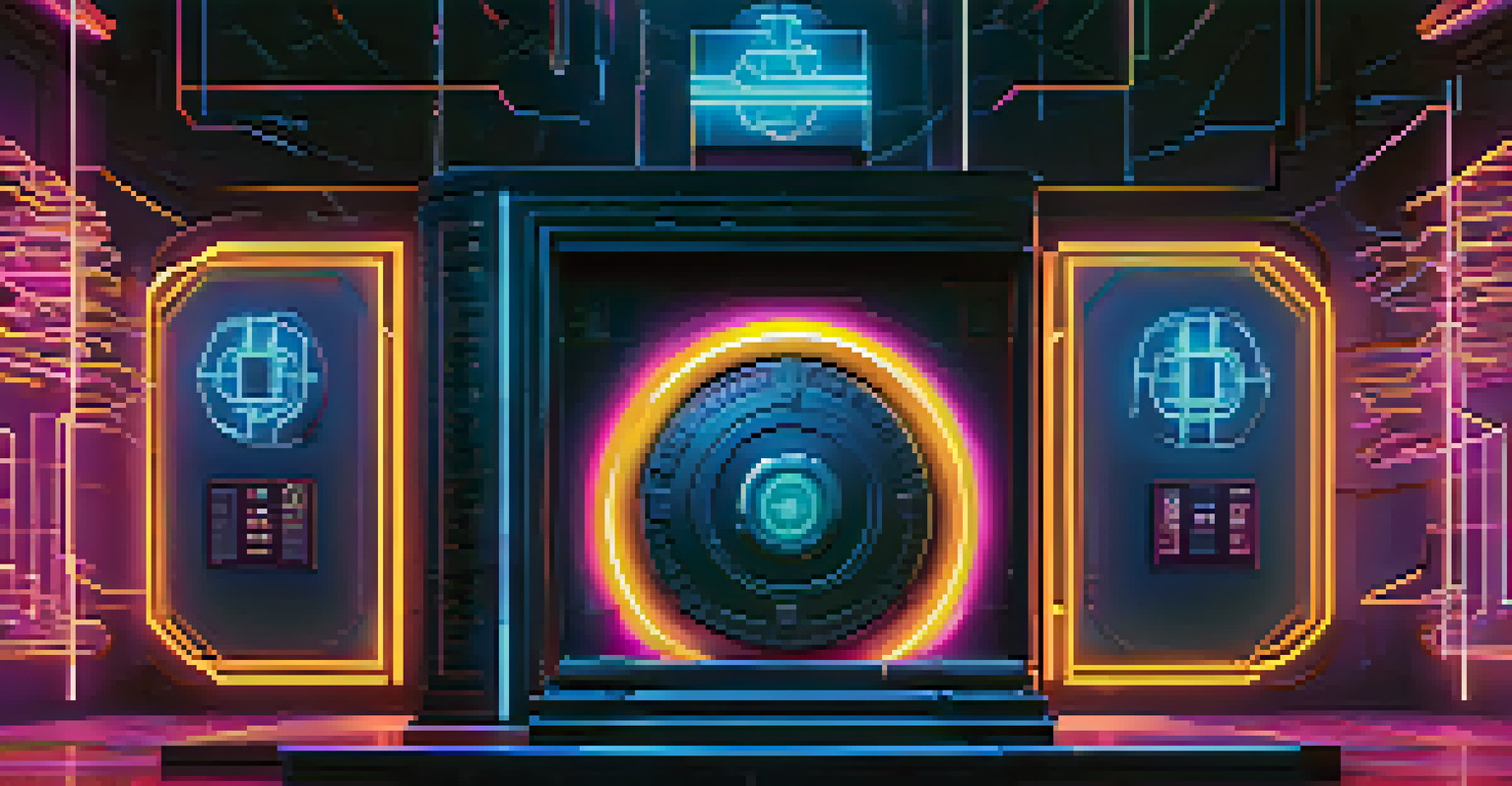Challenges Facing DAOs: Governance, Security, and Scalability

Understanding DAOs: A Brief Introduction to the Concept
Decentralized Autonomous Organizations, or DAOs, represent a new frontier in organizational structure. These entities operate through smart contracts on a blockchain, allowing for decentralized decision-making and governance. Unlike traditional organizations, DAOs aim to eliminate intermediaries, giving power directly to the community members.
The future of organizations depends on the ability to adapt to decentralized models.
Imagine a digital company where every stakeholder has a voice, and decisions are made collectively. This revolutionary approach fosters transparency and inclusivity, but it also brings unique challenges that can hinder their effectiveness. Understanding these challenges is essential for anyone looking to navigate the DAO landscape successfully.
As we delve deeper, we will explore the core challenges DAOs face today: governance issues, security vulnerabilities, and scalability concerns. Each of these aspects plays a critical role in shaping the future of decentralized organizations.
Governance Challenges: Balancing Power and Participation
Governance in a DAO often revolves around who gets to make decisions and how those decisions are made. While the ideal is to empower every member, this can lead to a scenario known as 'voter apathy,' where many stakeholders do not participate in votes. This lack of engagement can skew results and make governance ineffective.

Additionally, the challenge of ensuring fair representation arises, especially when some members hold more tokens or influence than others. This disparity can create a power imbalance, undermining the very principles of decentralization that DAOs strive for. Balancing these dynamics is crucial for a DAO's longevity and success.
Governance Challenges in DAOs
DAOs face issues like voter apathy and power imbalances, making effective governance a complex challenge.
To combat these issues, many DAOs are experimenting with different governance models, such as quadratic voting or liquid democracy. These innovative approaches aim to ensure that every voice is heard while minimizing the risks of concentrated power.
Security Risks: Protecting Assets in a Digital Landscape
Security is a paramount concern for DAOs, as they operate in a space often targeted by hackers and malicious actors. The reliance on smart contracts can expose organizations to vulnerabilities, as even a small coding error can lead to significant financial losses. The infamous DAO hack of 2016 serves as a stark reminder of these risks.
In a world where trust is scarce, transparency becomes a valuable currency.
Moreover, the decentralized nature of DAOs means that there is often no central authority to turn to in case of a breach. This lack of oversight can leave members feeling vulnerable and uncertain about the security of their investments. Ensuring robust security measures is not just important; it's essential for building trust within the community.
To enhance security, many DAOs are adopting practices such as regular audits, bug bounty programs, and decentralized insurance. By prioritizing security, DAOs can protect their assets and foster confidence among their members.
Scalability Issues: Growing Without Losing Integrity
As DAOs gain popularity, the challenge of scalability becomes increasingly apparent. Scaling a DAO effectively requires accommodating more members and transactions while maintaining the same level of efficiency and engagement. This growth can strain existing governance structures, leading to inefficiencies and a potential loss of cohesion.
Imagine trying to manage a community barbecue with just a handful of people versus organizing a festival with thousands. The complexity increases exponentially, and without a solid plan, chaos can ensue. Similarly, DAOs must develop scalable governance models that can handle growth without compromising the principles of decentralization.
Security Risks for Decentralized Groups
The reliance on smart contracts exposes DAOs to significant security vulnerabilities, necessitating robust protective measures.
To tackle scalability, some DAOs are exploring layer-two solutions and off-chain governance mechanisms. These strategies aim to enhance transaction speeds and reduce costs while ensuring that the core values remain intact as the organization grows.
The Role of Community: Building a Strong Foundation
At the heart of every successful DAO is its community. A strong, engaged community is vital for driving participation, fostering innovation, and maintaining the organization's mission. However, building this community takes time and effort, particularly in a space where many members may be geographically dispersed.
Effective communication channels and social platforms can help bridge the gap, allowing members to connect and collaborate easily. Additionally, rewarding contributions and encouraging active participation can strengthen community ties. A cohesive community can be a powerful force in overcoming governance, security, and scalability challenges.
As DAOs continue to evolve, prioritizing community engagement will be crucial. By fostering a sense of belonging and purpose, DAOs can navigate challenges more effectively and adapt to changing dynamics.
Legal and Regulatory Challenges: Navigating Uncharted Waters
DAOs operate in a rapidly evolving legal landscape, where regulations are often vague or non-existent. This uncertainty can create challenges for DAOs, particularly when it comes to compliance and liability. Different jurisdictions have varying approaches to cryptocurrency and blockchain technologies, which can complicate matters further.
For instance, some countries may classify DAOs as traditional organizations, while others may treat them as unregulated entities. This lack of clarity can lead to potential legal repercussions for members and founders alike. Navigating these regulatory waters requires a proactive approach and a solid understanding of the legal landscape.
Scalability and Community Engagement
As DAOs grow, maintaining effective governance and community engagement becomes increasingly crucial to their success.
Many DAOs are now focusing on engaging with legal experts and policymakers to advocate for clearer regulations. Establishing a collaborative dialogue can help create a more favorable environment for DAOs, ultimately benefiting the entire ecosystem.
Future Outlook: Overcoming Challenges for Growth
Despite the challenges facing DAOs, the future looks promising. As technology advances and the community continues to innovate, solutions to governance, security, and scalability issues are emerging. The DAO ecosystem is in a state of continuous evolution, with new tools and frameworks being developed to address existing concerns.
Moreover, as more organizations and individuals recognize the benefits of decentralized governance, we can expect increased participation and investment in DAOs. This growth could lead to greater innovation and the development of best practices that can help mitigate current challenges.

Ultimately, the journey of DAOs is just beginning. By addressing these challenges head-on and fostering collaboration, DAOs can pave the way for a more decentralized and equitable future.